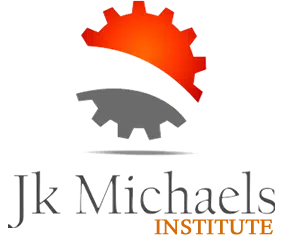Planning, Scheduling, and Cost Estimating Skills training course focuses on how to deliver comprehensive reliable plans with time and cost estimates that gives the owner or sponsor of projects, high levels of confidence for project delivery. This course is mainly designed for Project Management Professionals who wish to learn how to plan and control projects using established scheduling tools with or without Resources and Roles. Participants will gain hands-on experience building a new schedule, updating / monitoring the schedule, and generating reports. Participants also gain a thorough background in the concepts of planning and scheduling.
The COVID 19 pandemic has brought many a project to its knees with schedule and cost overruns – but with lessons learned we should, as project professionals, understand that our plans need to be realistic with a full view of any risks faced during and after the project lifecycle.
The decision to proceed with a project is based on early, high level conceptual estimates. However, these can be wide ranging and therefore more detailed estimates need to provide the basis for the cash flow projections and schedule forecasts. Much more attention now is required on how the project work will be achieved, for example at home or on site; and if together, whether teams can work safely with distancing rules.
Project Planning, Scheduling, and Cost Estimating Skills training course will provide the participants with a deep background in the concepts of planning and scheduling in engineering and construction projects; it addresses how to identify, monitor, and balance information crucial for the successful management of projects, also will discuss the development of the cost performance baseline through describing the main concepts of cost estimating that will allow the efficient compilation and the timely generation of quantitative performance comparisons, using different techniques for cost estimation such as parametric, analogous and Program Evaluation and Review Technique (PERT) to create accurate estimates.
Likewise, it will focus on comparisons that highlight significant performance departures (Actual vs Plan), which allow for preventive and early remedial and corrective actions, and how to create the periodically requested reports from different managerial levels. An additional valuable part will be discussed: understanding several approaches to adjust and optimise the schedule to overcome the potential of a delayed project.
Planning, Scheduling, and Cost Estimating Skills Learning Outcomes
- Understand the steps required to create a project plan and monitor a project’s progress.
- Understand the Planning Tools
- Create a project and set up the preferences.
- Define calendars
- Creating a project and set up the preferences
- Creating a Work Breakdown Structure and adding activities
- Format the display.
- View reports, record and track progress of an unsourced schedule
- Create and assign roles and resources
- Resource optimization including
- Use Filters, Group, Sort and Layouts
- Leveling
- Update a project containing resources
Training Methodology
This training course uses a combination of interactive presentations and live discussions. It will be supported with case study workshops, videos, models, tables, and charts to consolidate learning and discussion of the findings. A summary recap will be done by the end of each day, linking the topics to formulate a complete training programme. Upon request, it can include a final multiple-choice test on the material as a learning evaluation method.
IMPACT OF PLANNING, SCHEDULING AND COST ESTIMATING SKILLS
- Helps you to plan, track and review project schedules.
- You will be able to manage and track project progress both professionally and effectively.
- The skill and confidence to use a practical project planning technique.
- The ability to determine if a project can truly be delivered on time and within budget.
- An understanding of how to discover the risks necessary to meet a constrained delivery date.
- The confidence to communicate project “trade-offs” clearly and set attainable goals with clients, managers, and project team members.
- The knowledge of how to record actual project progress and then use the project baseline to spot and manage variance.
- The ability to “frame” your questions when analyzing the project plan to spot hidden variances.






